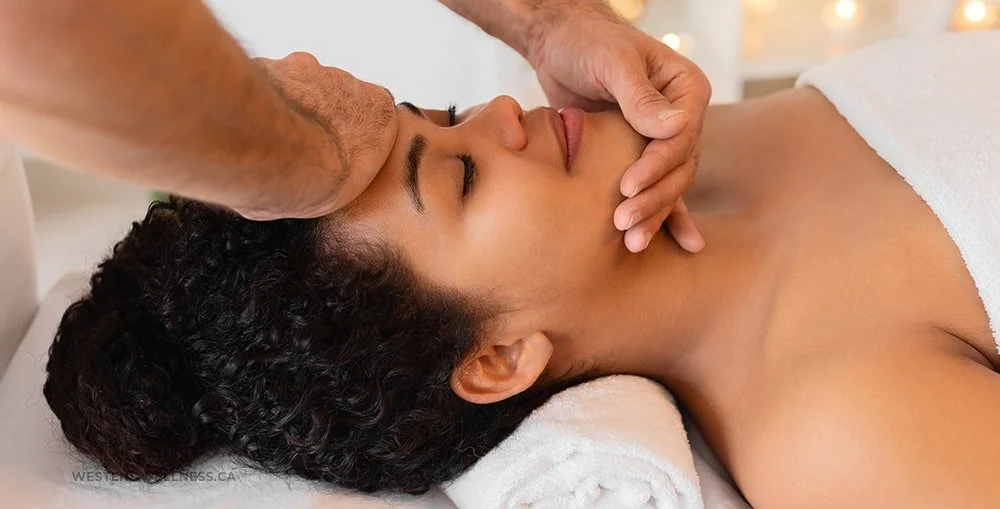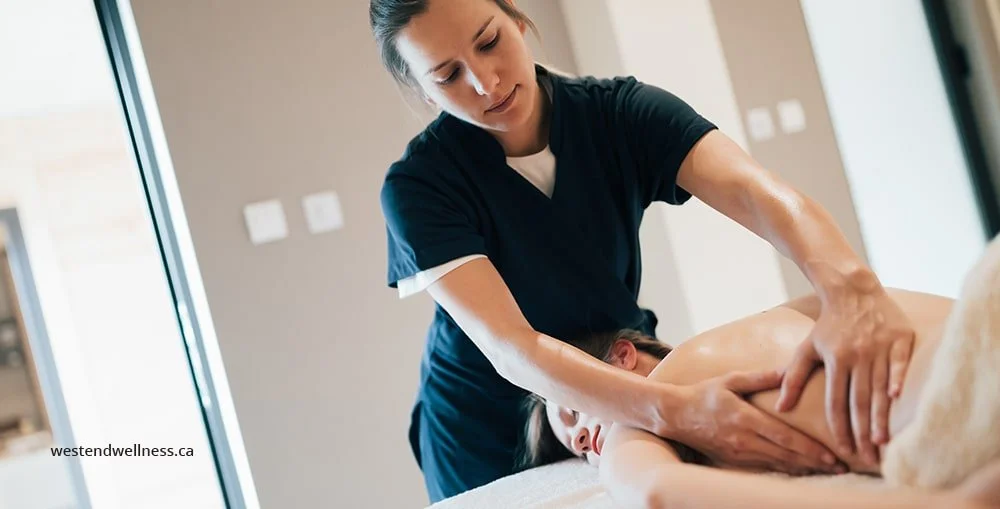Understanding the Benefits of Registered Massage Therapy
Table of Contents Show
Quick Summary
Explore how acupuncture and Traditional Chinese Medicine offer natural solutions for fatty liver disease. This comprehensive guide explains common symptoms like fatigue and abdominal discomfort and why they occur. Learn how combining Eastern and Western approaches can improve liver function and overall health.
Discover practical insights about diet modifications, treatment expectations, and lifestyle changes that support healing. Whether you're newly diagnosed or seeking alternative treatments, understand how acupuncture's proven techniques can help reverse fatty liver disease and restore your well-being.
TL;DR – The Benefits of Registered Massage Therapy (RMT)
RMT offers more than just relaxation—it helps with pain relief, injury recovery, and stress management.
Registered Massage Therapists are trained healthcare professionals who create personalized treatment plans.
Massage therapy improves circulation, mobility, and overall physical function.
Treatments can support mental health by reducing anxiety and promoting relaxation.
Regular sessions contribute to long-term wellness and a higher quality of life.
Let’s be honest — when your back is aching, your shoulders are tight, or the stress of daily life feels like it's weighing you down, it’s only natural to wonder: Would a massage actually help? Or is it just a temporary escape that wears off too quickly?
If you’ve been asking yourself those kinds of questions, you’re not alone.
Many people are curious about how massage therapy fits into real, lasting wellness, beyond just feeling good for an hour. And honestly? We get it. We believe strongly in the power of Registered Massage Therapy (RMT), not because it's a luxury, but because we've seen what a difference it can make in people’s lives.
That’s why we’re writing this article. We want to walk you through what RMT really is, what makes it different, and how it can support your body, mind, and daily life.
We'll keep it simple, natural, and genuinely helpful — no hype, no heavy-handed sales pitch.
Stick around if you’re looking for real answers, a bit of clarity, and maybe, just maybe, a better way to feel at home in your body again.
What is a Registered Massage Therapist (RMT)?
When you hear the word “massage,” you might think of a spa day or a quick way to unwind. But a Registered Massage Therapist (RMT) offers something more — something rooted in healthcare, not just relaxation.
In British Columbia, RMTs are highly trained healthcare professionals. They undergo extensive education, pass rigorous exams, and continually update their skills through ongoing training. Their goal isn't just to help you feel good for an afternoon; it's to support your long-term health and well-being.
An RMT is trained to assess your body, identify areas of tension or dysfunction, and create a treatment plan that addresses the root causes of pain or discomfort. They work with muscles, joints, connective tissues, and the nervous system to promote healing, restore mobility, and reduce stress. Whether you're dealing with an injury, chronic pain, or everyday muscle tightness, an RMT brings a professional, therapeutic approach to every session.
At West End Wellness, our Registered Massage Therapy services are designed to meet you where you are, helping you move better, feel better, and live better—naturally.
Top Benefits of Seeing a Registered Massage Therapist
When you think about massage, the first thing that might come to mind is relaxation, and while that is definitely part of it, Registered Massage Therapy offers so much more. It's not just about feeling good in the moment, but about creating real, lasting changes in your body and overall well-being.
Here are some of the ways working with an RMT can make a difference in your day-to-day life.
-
Living with pain can wear you down, both physically and mentally. An RMT uses techniques that help ease muscle tension, improve blood flow, and support your body’s healing process. Whether you are recovering from a sports injury, surgery, or dealing with chronic aches, massage therapy can play an important role in managing pain and speeding up recovery. -
If you have ever felt like your muscles are stuck in a knot, you are not alone. Everyday activities like sitting at a desk, exercising, or even stress can cause muscles to tighten up. RMTs know how to target these problem areas to release tension, helping you move more freely and feel more comfortable in your body.
-
It is amazing how much tight muscles can hold you back. Registered Massage Therapy can help restore movement in stiff joints and muscles, making it easier to do everything from daily errands to weekend adventures. Keeping your body flexible also helps lower the risk of future injuries, especially as life gets busier or more demanding.
-
Massage therapy is not just about working on the body; it is about calming the mind too. An RMT session can help lower stress hormones, relax the nervous system, and create space for true rest. Many people find they sleep better after a massage, waking up feeling more refreshed and better able to take on the day.
-
Even when you are not dealing with specific pain, regular massage therapy can make a real difference. It can support better posture, strengthen your immune system, and encourage a deeper sense of body awareness. Over time, small changes from regular care can add up to a big shift in how you feel, move, and live.
Common Conditions an RMT Can Help With
While massage therapy can support general wellness, it is often the specific aches, pains, and everyday struggles that bring people through our doors. Whether you are dealing with an old injury, work-related tension, or something that just doesn't seem to go away on its own, Registered Massage Therapy can be part of finding real, lasting relief.
Here are some of the most common reasons people turn to RMT care, and how it can help bring the body back into balance.
-
It is hard to get through the day when every move reminds you of discomfort. Many people live with chronic back pain caused by posture, old injuries, or even stress. RMTs use focused techniques to release deep muscle tension, improve mobility, and help prevent future flare-ups. Learn more about treating back pain with massage therapy.
-
If you sit at a desk, spend hours on a phone, or carry stress in your upper body, you have probably felt that familiar tightness around your neck and shoulders. Over time, this tension can cause headaches, stiffness, and reduced range of motion. A registered massage therapist can target these areas to help you feel lighter and move more freely. Discover how massage can help with neck pain.
-
Tension headaches and migraines often have hidden muscular causes, especially around the neck, jaw, and shoulders. Massage therapy can help reduce the frequency and intensity of headaches by addressing these underlying issues and calming the nervous system. Read more about massage therapy for managing headaches and migraines.
-
Whether you are an athlete or simply active on weekends, sore muscles and sports injuries can slow you down. RMTs can support injury recovery, improve flexibility, and help you get back to doing what you love with less pain and stiffness. Explore sports massage therapy in Vancouver.
-
From typing all day to lifting kids or working in trades, repetitive movements can wear on your muscles and joints. Conditions like carpal tunnel syndrome, tendinitis, or shoulder strain are all common reasons people seek out massage therapy. RMTs are trained to spot and treat these issues early, helping you avoid bigger problems down the road. Find out how massage helps with carpal tunnel syndrome.
How Often Should You See an RMT?
Everyone’s body has a different story, which means there is no one-size-fits-all answer to how often you should book a massage. Some people come in once a month to maintain their health and prevent issues from building up. Others may need a more regular schedule, especially if they are recovering from an injury, managing chronic pain, or dealing with high stress.
At your first visit, your RMT will take time to understand your needs, goals, and lifestyle. From there, they can recommend a plan that feels right for you, whether that is a few sessions close together to address something specific, or occasional visits to keep your body feeling its best.
The most important thing is listening to your body. If you are feeling stiff, sore, or simply not moving as easily as you’d like, it might be time to give yourself that extra support.
What to Expect at Your First RMT Appointment
Walking into something new can feel a little intimidating, but your first visit with an RMT is designed to be simple, welcoming, and all about you.
At the start of your appointment, your therapist will take a few minutes to discuss with you. They will ask about your health history, any current aches or injuries, and what you hope to achieve through your treatment. This conversation helps them create a plan that fits your body and your goals, whether you are looking for deep tissue work, stress relief, or help recovering from an injury.
During the massage, your RMT will check in with you to make sure the pressure feels right and that you are comfortable. You are always encouraged to speak up if you need adjustments. It is your time, and it should feel supportive from start to finish.
Afterward, your therapist may offer simple tips to help you feel your best, such as stretches, hydration advice, or suggestions for future care.
Frequently Asked Questions
What is RMT good for?
Registered Massage Therapy is an effective way to manage pain, aid in body recovery from injuries, enhance mobility, reduce muscle tension, and lower stress levels. It can also help with conditions like chronic back pain, headaches, sports injuries, and repetitive strain injuries.
Many people also use RMT to support overall wellness and maintain their bodies' strength and flexibility.
What is the difference between clinical massage therapy and massage therapy?
The primary difference lies in the treatment's goal. Clinical massage therapy, as provided by an RMT, focuses on addressing specific health concerns, injuries, or chronic conditions. It is part of healthcare, with assessments, treatment plans, and professional standards.
General massage therapy, such as what you might find at a spa, is typically more focused on relaxation and does not require the same level of medical training or care planning.
How does registered massage therapy work?
Registered Massage Therapy works by employing a range of manual techniques to help muscles, joints, and connective tissues function more effectively. An RMT will first assess where tension, pain, or dysfunction might be originating, then apply specific techniques, such as deep tissue work, trigger point therapy, or gentle stretching, to help the body heal and move more easily.
It employs a personalized approach, focusing not only on symptoms but also on the root causes of discomfort.
Final Thoughts
At the start of this article, we acknowledge that we may be a little biased when it comes to Registered Massage Therapy. After walking through everything together, maybe you can see why it is hard for us to stay completely neutral.
We discussed how RMT is not just about pampering yourself for an hour; it is a genuine part of healthcare. A Registered Massage Therapist can help with pain relief, injury recovery, easing muscle tension, improving mobility, and even supporting better sleep and stress management. We also explored the kinds of everyday aches and struggles RMT can help with, from stubborn back pain to headaches and repetitive strain injuries.
If you're wondering how often you should go or what it would feel like to get started, the good news is that Registered Massage Therapy is flexible, supportive, and completely tailored to you. Your first appointment is all about understanding your needs and helping you feel comfortable every step of the way.
So, yes, we may still be a little biased.
But after learning a little more about what RMT really offers, we hope you feel more confident deciding if it is the right next step for you.
If your body has been asking for a little extra care, maybe now is the perfect time to listen.
If you have any further doubts or questions regarding this subject or another treatment, contact one of our experienced Acupuncturists or Registered Massage Therapists here at West End Wellness Clinic. You can either give us a call or make an appointment.
Disclaimer: Please remember this article is for informational purposes only and should not replace professional medical advice. Please consult a healthcare provider or someone with the correct qualifications before starting any new exercise or treatment program.





